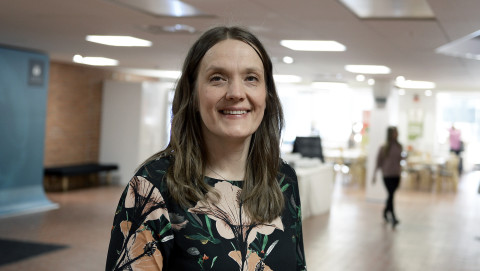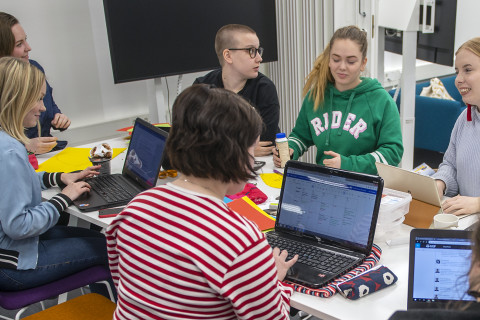“When the labour markets are in crisis, career counsellors get called to rescue,” Senior Lecturer of Career Counselling and Guidance Anne-Mari Souto says, summing up the situation in her field. With societies facing a new kind of emergency, career counsellors, too, are faced with novel challenges.
The coronavirus pandemic is putting health care systems all over the world to an unprecedented test. The world has come to a halt like never before, and the pandemic is testing not only the limits of our health, but also those of our economy. However, all numbers and statistics will eventually boil down to how people manage to pull through and what the psychological coping mechanisms allowing them to resume their lives when things get back to normal are.
“This time comes with so many big questions that no one has a clear understanding of the future. Traditionally, the role of career counsellors has been to support people in their educational and work life transitions, but right now, that role is more about supporting people, keeping their hopes alive and helping them to remain functional,” Souto says.
The basic themes of career counselling and guidance, i.e. dealing with one’s emotions and being empathetic and resilient, are now needed more than ever. It has been suggested that the value and contribution of the humanities and human sciences will be seen in a new light after the pandemic is over.
“In the field of career counselling and guidance, there is an ongoing and international discussion about how this crisis will shape our role. Professor Rie Thomsen, a Danish scholar of career counselling and guidance, has critically asked how the contents of our work will be seen in a situation where submitting one job application after another and honing one’s personal brand simply aren’t feasible career strategies anymore.”
Finding a middle ground between the different goals set by society and by individuals is a never-ending balancing act in career counselling and guidance. Many players in the field hope that the latter would be emphasised more, and that supporting individual agency would be invested in more extensively.
“Our society has idolised rapid graduation and finding employment quickly, but as we are tackling this crisis, I’d like to see us enabling new goals and alternative ways of doing things. Good examples of this are the university’s decisions to make Open University courses available to the unemployed free of charge, and to give students extra time to complete their degrees. If no work is available, why should they rush to enter the labour markets?”
New models of thought
Souto also advocates support for finding meaningful things to do, both for oneself and for others. For instance, would it be possible for an unemployed person to use their time for meaningful charitable work, or would they still be obliged to participate in courses aiming to activate them towards finding employment?
“People need sustenance and they need to get paid, but if no jobs are available, what could be the alternative and how can we become involved in these new processes?”
Souto hopes that the aftermath of the pandemic will stir new discussion on the relationship between work, sustenance and well-being, as well as on what will be important in the future – both to us and to our planet.
Increasing inequality is also a much-discussed topic in career counselling and guidance at the moment.
“Although the coronavirus doesn’t select its victims, the consequences of the pandemic are most often and most severely felt by those already in disadvantageous positions. When dealing with the consequences of the pandemic, including in processes relating to career counselling and guidance, we need to make sure that we analyse the effects our actions have on equality.”
Putting skills to use
The University of Eastern Finland trains future professionals of career counselling and guidance. Like many other jobs, career counselling and guidance has also moved online, and most of it is now offered remotely.
“We have been teaching multichannel career counselling and guidance already before the pandemic, but I’m guessing that it will assume an even more prominent role. Skills relating to online and digital environments are in high demand in this field, too.”
Souto is also pleased that career counselling and guidance education at the University of Eastern Finland has a strong focus on societal differences and inequalities in the lives of individuals and in their educational transitions.
“These skills will be especially useful in this new era we are living in.”




